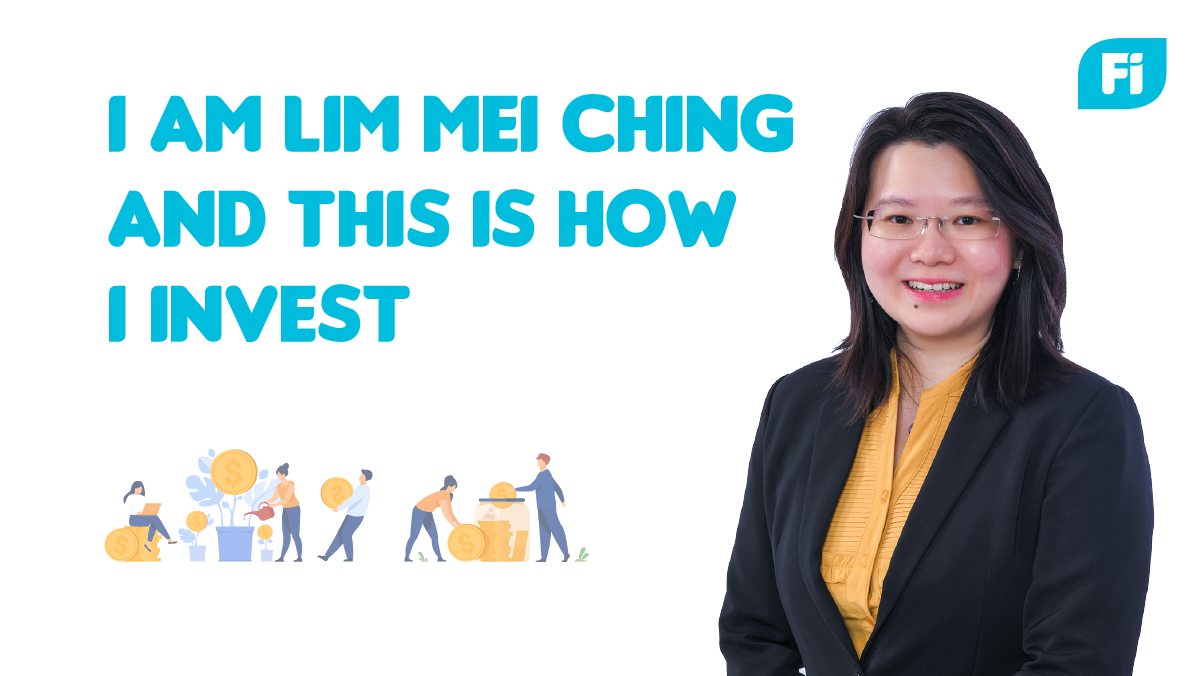
- What’s your day job?
I am currently the Finance Director of my family business at Merico Sdn Bhd. Merico is a company that is involved in the manufacturing of dairy spreads and I am responsible for the daily financial operation of Merico. I was formerly an equity fund manager who has been in the investment banking industry for more than 12 years in both the buy side and sell side of equity research. During the lockdown, I have recently authored the book “Be Your Own Fund Manager” which is a beginner’s guide to stock investing. On a part time basis, I am a trainer for Continuing Professional Education (CPE) courses under Ogos Learning.
- What’s your best investment?
After leaving investment banking, I started investing in the Malaysian stock market on my own by applying the concept of “FATA” which combines both fundamental analysis (FA) and technical analysis (TA). By applying the FATA concept coupled with strict portfolio management skills, I have managed to earn commendable passive income to complement my active income.
In Chinese, “FATA” means prosperity. Having said that, it doesn’t mean that the FATA strategy works all the time. It merely reduces the risks of investment by using additional tools. Generally, investors use fundamental analysis to derive the target price (intrinsic value) of the stock by referring to the financial metrics of the listed companies such as profit and loss, balance sheet and cash flow statement. On the other hand, technical analysis usually involves the psychological aspect of investing by studying whether the buyers or sellers are in control using various technical indicators.
Instead of arguing whether fundamental analysis or technical analysis is better, I personally believe that both analyses complement each other, and it is better to use both for a more informed investment decision making.
- What was your worst investment?
My worst investment was investing into cryptocurrencies, specifically Bitcoin, Ethereum and Litecoin. Nevertheless, the losses were very minimal as I am not a firm believer of cryptocurrencies. In fact, I only invested a very minimal portion of my investment into cryptocurrencies to gain some trading experience. Since cryptocurrencies have no intrinsic value and are not backed by any asset, the value of cryptocurrencies can be highly speculative and volatile.
Personally, I prefer to invest in stocks rather than cryptocurrencies because buying a share is investing into a real business that produces goods and/or services. On the other hand, cryptocurrencies are non-productive assets.
- What was your first-ever investment (and how did that go)?
My first investment was investing in an apartment which I bought more than 10 years ago. Over time, the market value of the property which I have bought has appreciated. Since it has been rented out, I have been receiving monthly passive income from that property which has also helped me to service the loan on the property.
- Any investment no-nos?
In my book “Be Your Own Fund Manager”, I have encouraged investors to do their research before buying into a stock which applies to anything that we invest in as well. My investment philosophy is that I need to understand what I am buying before investing. Therefore, my investment no-nos would be buying something that I don’t even understand.
- What are you investing for?
I am investing as a hedge against inflationary pressure. If I buy fundamentally strong listed companies at attractive valuation, there is a high possibility of beating the inflation rate or even fixed deposit run over the long run.
Moreover, investing would allow my funds to grow over time under the concept of compounding. Under the concept of compounding, a higher return would be generated if the profits earned are invested back. The longer the time frame, the greater the investment value (assuming consistent positive return). Therefore, it will be good to start investing early for a higher accumulated return in the long run.
- What’s your investment philosophy/approach?
My investment philosophy is never to borrow money to buy stocks as it is not a guaranteed return. By using the extra cash that I have to buy stocks, I will have better holding power to ride through the volatility of the stock market. In addition, I am able to control my emotions better which may lead to more rational decision making for the benefit of the equity portfolio.
- What about insurance? When do you think is the best time to buy insurance and what type of insurance and why?
I personally believe it is important to buy insurance as a form of financial security. It would be good to buy insurance when a person is still young and healthy so that a more affordable rate might be offered by the insurer. In terms of type of insurance, I would prefer to buy a pure protection life insurance instead of an investment-linked insurance plan as I always believe investment should be separated from the insurance plan for better financial management. (Editor’s note: This is music to our ears as it’s exactly what Fi Life offers, pure protection plans)
- What would you do differently finance-wise if you could turn back time?
If I could turn back time, I would still be doing what I did. The experience as a former fund manager and analyst in investment banking, unit trust, insurance, rating agency and asset management, has helped me tremendously in understanding financial management. I am glad that my experience of more than 12 years in investment banking is now shared in my recently launched book “Be Your Own Fund Manager”.
I am Lim Mei Ching and that’s how I invest!
Share this article:
P.S. If you want to follow Lim Mei Ching in separating your insurance and investment needs, check out our life/TPD/Critical lllness and medical pure protection offerings.
Follow Lim Mei Ching on LinkedInFound this content useful? Be sure to subscribe to our newsletter for more content & tips on Personal Finance and Investment.
